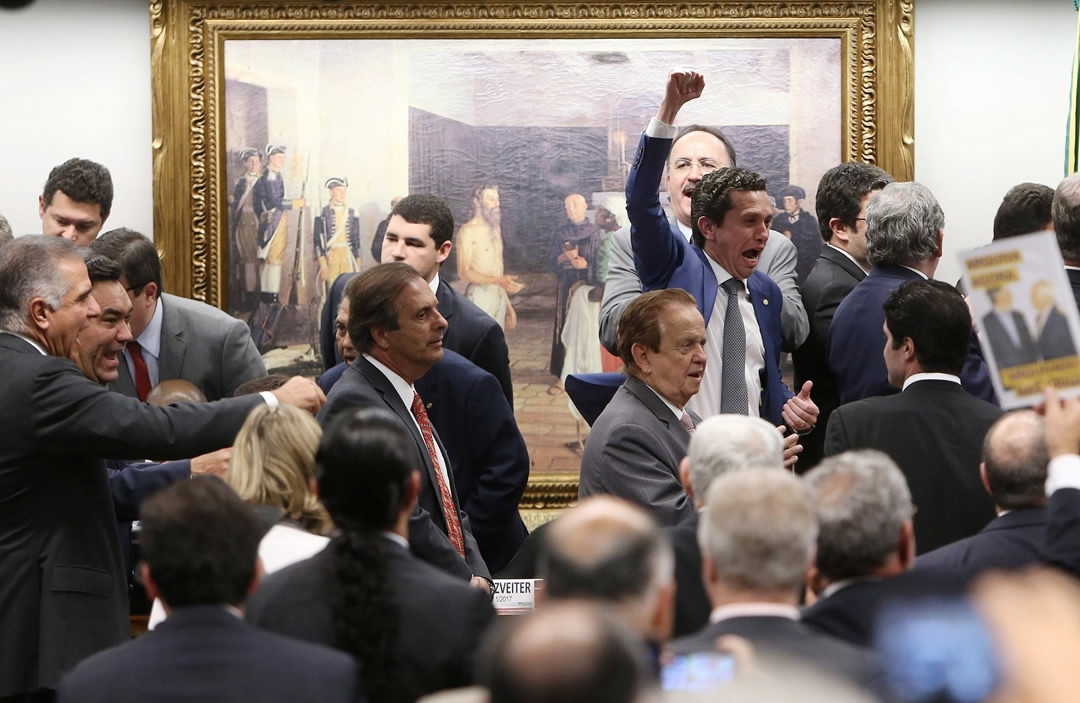
Politics
09:30, 14-Jul-2017
Brazilian President Temer survives parliamentary corruption vote

The Commission on Constitution, Justice and Citizenship (CCJ) of Brazil's Chamber of Deputies voted on Thursday to reject the corruption charges against President Michel Temer by 40 votes to 25.

Brazilian President Michel Temer delivers a speech during a public health investment announcement event at Planalto Palace in Brasilia on July 13, 2017. /VCG Photo
Brazilian President Michel Temer delivers a speech during a public health investment announcement event at Planalto Palace in Brasilia on July 13, 2017. /VCG Photo
In this way, the CCJ advises the full Chamber of Deputies to vote against the report by Deputy Sergio Zveiter, which recommended accepting the charges.
This result was expected as, in recent days, the government succeeded in changing the minds of a number of CCJ members who had threatened to vote against the president.
Ahead of these changes, Temer was set to lose a CCJ vote by 32 to 30, according to estimations by Brazilian media.
Before the vote on Thursday, Zveiter said the government had used public money to try and save its mandate, which consisted of "obstruction of justice."
However, this vote is a non-binding, advisory motion for the full Chamber of Deputies which must now vote on whether to accept the corruption charges against Temer.

Congressmen celebrate after voting against sending a corruption charge against Brazilian President Michel Temer to the Supreme Court for the leader to be put on trial in Brasilia, Brazil July 13, 2017. /VCG Photo
Congressmen celebrate after voting against sending a corruption charge against Brazilian President Michel Temer to the Supreme Court for the leader to be put on trial in Brasilia, Brazil July 13, 2017. /VCG Photo
Prosecutor-general Rodrigo Janot filed charges against Temer at the Supreme Court, accusing the president of accepting bribes from meatpacking group JBS since 2010.
If the Chamber of Deputies and the Supreme Court both accept the charges, Temer will have to step down from office for 180 days and face trial.
This would be the first time that a sitting president has been charged before the Supreme Court.
(Source: Xinhua)
16952km

SITEMAP
Copyright © 2018 CGTN. Beijing ICP prepared NO.16065310-3
Copyright © 2018 CGTN. Beijing ICP prepared NO.16065310-3